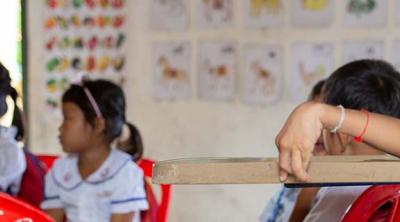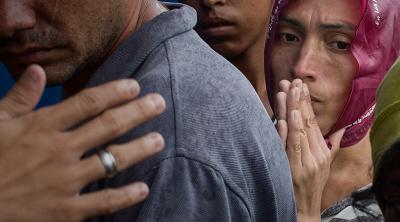CRS in Sri Lanka
Sri Lanka continues to recover from a decades-long war and the devastating effects of recurrent natural disasters, including the 2004 tsunami. Catholic Relief Services' work in the country has focused on rebuilding after natural disasters and helping those displaced by war. The conflict left thousands of people with no food, home or way to rebuild their lives. CRS’ US Department of State-funded Puthiya Vidiyal “New Dawn” project supports safe and dignified lives for families who have returned to Sri Lanka after living in camps in Tamil Nadu, India. CRS and its partners support returnees by strengthening agriculture livelihoods, training in employable skills, reducing sexual and gender-based violence, and obtaining civil documents. In Sri Lanka, the project is implemented in Manar, Vavuniya, Jaffna and Trinchomalee districts, and supports 3,138 direct beneficiaries and 10,639 indirect beneficiaries. In addition, through Caritas, CRS also helps provide prosthetics to victims of the war, and empowers farm workers on tea plantations to improve their quality of life. In all its programs, CRS works to foster better relationships among people and communities to ensure a lasting peace in Sri Lanka.
Stats
People Served: 3,142
Population: 22,409,381
Size: 25,332 sq mi; about the size of West Virginia
Our Partners
Become a Partner ›Programming Areas
CRS' History in Sri Lanka
Through our partner Caritas, CRS began assisting the people of Sri Lanka in 1994 from its office in India. In 2001, CRS began sponsoring the National Peace Program through Caritas. This initiative was designed to bring together people from across the ethnic and religious divides in an effort to ease tensions that have been at the roots of the civil war. CRS immediately responded to the December 2004 tsunami in Sri Lanka, in collaboration with Caritas Sri Lanka and Jesuit Refugee Services. Through these partnerships, CRS provided rehabilitation assistance to tsunami victims throughout the country. The civil war in Sri Lanka between the government and the Liberation Tigers of Tamil Eelam escalated in 2006, and the number of internally displaced people rose sharply. In 2009, when the war came to an end, CRS and our partners created return and resettlement programs for the displaced people. Partnering with Caritas, CRS supported food, medical care and other basic needs for displaced people living in camps.





